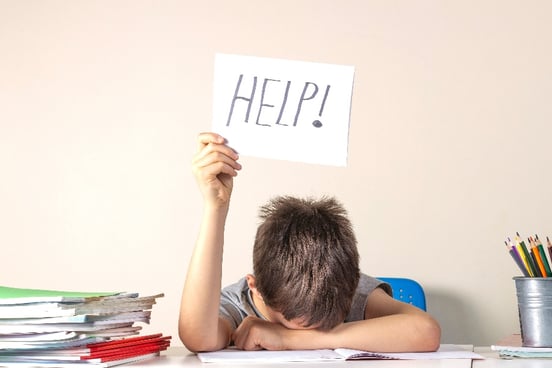
STEM Education Resources Teachers Actually Need in 2026
STEM brings together science, technology, engineering, and math in a connected way.
ALI Staff | Published March 09, 2022
Problem-solving is essential in math education.
It encourages learners to think critically, reason logically, and persist in the face of challenging tasks.
Engaging learners in this fundamental aspect of math promises to enhance their academic performance and prepare them for complex reasoning tasks in the future.
In this blog, we'll explore the nature of problem-solving in math, its importance, and strategies teachers can use to improve these skills in students.
We'll provide strategies for educators to strengthen problem-solving skills in their classrooms, ensuring students are well-prepared for both academic challenges and practical problem-solving in everyday life.

Problem-solving in math involves understanding a question and discovering solutions. It entails analyzing a problem, interpreting its requirements, and strategizing an approach. This skill goes beyond knowing number facts and rote memorization to encompass creative and logical thinking for overcoming obstacles.
The problem-solving process typically involves several key steps:
Effective problem solving in math is a fundamental skill that enables students to apply their knowledge practically. It encourages them to be persistent, logical, and resourceful, which are valuable traits not just in math but in all areas of learning and life.
Problem-solving is a key part of math education, as it strengthens critical thinking and prepares students for real-life challenges.
Engaging in problem-solving, students sharpen their analytical skills. They learn to dissect complex problems, propose various solutions, and justify their choices. This process bolsters their mathematical reasoning and equips them with a structured approach to tackle abstract concepts and intricate problems, enhancing their overall academic skills.
Mastering problem-solving in math transforms students into thinkers capable of applying mathematical principles to everyday situations. From calculating change to strategizing on environmental projects, these skills are indispensable. Proficiency in problem-solving translates to adeptness in managing real-world tasks, fostering independence and confidence in making data-driven decisions.
A math curriculum rich in problem-solving tasks is more interactive and also influential in student engagement. It pushes learners beyond memorization to actively interact with math concepts, making learning a dynamic and personal experience. Such a curriculum develops adaptive learners who are not intimidated by new or complex problems, setting them up for success in diverse future endeavors.
By reinforcing math education with problem-solving exercises, we nurture resourceful learners ready to navigate both academic challenges and everyday life with assurance
Enhancing problem-solving skills in students is a critical goal for educators. Here’s how teachers can build these competencies in the classroom:
Engaging students in practical problem-solving activities enriches their learning experience and also anchors their understanding of mathematical concepts in the real world.
Such activities can stimulate interest, encourage deep thinking, and demonstrate the tangible applications of mathematical thought processes.
Here’s how educators can bring problem-solving to the forefront of their math instruction:
It’s critical that students have a positive outlook on problem-solving. This shifts student perception of math from fear to opportunity, which is essential to academic performance.
By encouraging a growth mindset, creating safe spaces for risk-taking, and promoting collaborative learning, educators can foster a supportive environment where students tackle mathematical challenges with confidence and resilience, setting them up for success in diverse areas of learning.
Educators can support their students by:
Math problem-solving skills are crucial beyond the classroom. They equip students to handle real-life situations where answers aren't straightforward. Educators who focus on these skills are preparing their students not just for tests but for life's unpredictable problems.
By applying math to daily challenges, students learn to think critically and solve issues with confidence. It's preparation for a world that values innovative solutions and thoughtful decision-making.

STEM brings together science, technology, engineering, and math in a connected way.

Mathematics can be a challenging subject for many students, requiring schools to have effective strategies in place to...

The news headlines are daunting. Math scores are down. School districts are scrambling to turn things around. And...